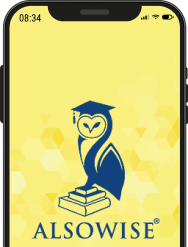Language is too sophisticated to learn on social media
The English language, like all other human languages, is a convention. In this, it is much like mathematics. It is not an embodiment of truth – like the laws of science or the facts of history – but it can help to make facts become precise and clear. It supports our endeavour to make sense of the world. It has a logical basis that works on rules and exceptions. It has an aesthetic power that fires the mind: a pithy paragraph can be as convincing and pleasing as an elegant mathematical proof.
It necessarily follows, therefore, that a language will be nuanced and sophisticated. This is especially true of English, the global language of business, politics, and academics. We spend an inordinate amount of time, effort, and money in making sure that our children are mathematically and scientifically equipped to deal with every challenge in school and university – at the expense of all else – convinced that these skills will suffice to secure lifelong success. But this is not quite true. For in the end, it is our ability with language – and for many of us this language is English – that differentiates us from others, that helps us to express our thoughts, and that eventually establishes our leadership credentials.
This is why no level of expertise or brilliance can be divorced from the facility to use language to articulate and persuade others of your potential.
This is also why language learning cannot be left to the vagaries of social media. When understanding and usage need to be improved, YouTube and Instagram should not be the first ports of call. While there are plenty of advisers and influencers who are earnest, eager, funny, and creative, one’s command of English simply cannot be improved in thirty-second or two-minute daily exposures through:
- Sporadic rules of thumb
- Random pronunciation checks
- Pictorial charts
- Audio-visual quizzes
- Interesting words of the day
This situation can be infinitely more damaging – and it very often is – when the subject matter is incorrectly explained, pronounced, or rendered.
So, if you feel the need to enhance this skill, choose a path that’s slow but sure, and ultimately beneficial in the long term. it’s never too late to become proficient in a language. It takes dedication and time. It takes a fundamental recognition that there is always room for improvement and something to learn. For all that, it’s an investment that is guaranteed to succeed.
And with ALSOWISE® you can hone your language skills while:
- Setting your own pace
- Testing yourself and receiving instant feedback
- Really experiencing a growth in proficiency and confidence
How does the ALSOWISE® Programme enable you to acquire this skill?
The ALSOWISE® Masters Programme is designed to enhance proficiency in the English language for young working professionals, with a view to making them proficient communicators. Demanding only 80 minutes per week, it focuses on:
- Revisiting the foundations of language which is the basis of all communication.
- Building critical reading skills to develop a self-learning orientation for continuous improvement.
- Honing both verbal and written business communication skills for the workplace through real-world examples.
Using technology to recreate a one-to-one classroom environment, in which users are made to listen, read, engage, and practice, on a mobile device of their choice goes a long way in building familiarity with, and expertise in, the English language.
It is never too late to learn and hone this valuable skill. So, if you’re looking to improve your English language and communication abilities with a view to standing out in a crowded field, and getting ahead:
- Download the ALSOWISE® app today.
- Register immediately – the process is quick and simple.
- Sample the FREE Demo and discover for yourself that ALSOWISE® is the English language enhancement app that you were looking for.




